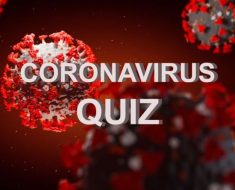Alzheimers Research UK explain 'what is dementia?'
Dementia represents a daunting condition but research continues to suggest that your risk might be modifiable. A researcher has shared five nutrient-rich foods that could be up for this job with Express.co.uk.
While studies usually focus on one potential candidate at a time, the latest dementia research backs two.
The first study, published in The American Journal of Clinical Nutrition, suggested that a supplement combination of B vitamins and omega-3s could be potent at protecting the brain.
The research team found that the “dynamic” supplement duo could stop your brain from shrinking by a whopping 73 percent.
The discovery, hailed as “a major step towards Alzheimer’s prevention”, was first made at the University of Oxford, but has now been confirmed by research groups across Holland, Sweden, and China.
READ MORE: Six foods that could be fuelling heart disease – ‘Avoid or limit’ say cardiologists

Express.co.uk spoke to one of the researchers behind the original study, David Smith, about how foods could help bridge the gap between the lack of B vitamins and omega-3s and a lower dementia risk.
Professor Smith suggested that the following foods could help boost your intake of the potent nutrients:
- Fish
- Dairy products
- Leafy greens
- Organ meats
- Starchy vegetables.
The researcher said: “Fish, especially oily fish, is rich in omega-3 and in B12 and eating fish has been shown to slow cognitive decline and to reduce the risk of dementia.
Don’t miss…
Six foods that could be fuelling heart disease [EXPERT ADVICE]
Mum with two vaginas shares precautions she must take with her husband [INSIGHT]
Tackling high blood pressure [INFORMER]
“The best fish are those that swim in cold water and eat other fish, such as mackerel and salmon, sardines and anchovies. Herring and kippers are also excellent.”
If you’re following a vegan diet, you’ll be pleased to find out that algal or seaweed-derived omega-3 fatty acid, known as DHA, could also help protect your brain.
When it comes to B vitamins, the key candidates are B6, B12 and folic acid, according to the expert.
Professor Smith said: “Milk and dairy products are a good source of B12 and green leafy veg of folate, while again fish is a good source of vitamin B6, along with organ meats, potatoes and other starchy veggies.”
READ MORE: How to tackle high blood pressure

The professor explained that sticking to a diet packed with these two nutrients could help reduce your risk of dementia by as much as 20 percent.
However, he also stressed that this type of diet may only reduce your risk if eaten for many years.
Professor Smith said: “But for most people, not enough of these nutrients can be obtained from food and supplements are needed to get a high enough dose.
“This is especially true of B vitamins. Vegans must take B12 supplements anyway as plants do not contain B12.”

Therefore, he recommended getting both omega-3s and B vitamins mainly from supplements.
What are the early symptoms of dementia?
The mind-robbing condition can affect everyone differently but there are some “common early” symptoms to be aware of, according to the NHS.
The health service advises to look out for these tell-tale signs:
- Memory loss
- Difficulty concentrating
- Finding it hard to carry out familiar daily tasks, such as getting confused over the correct change when shopping
- Struggling to follow a conversation or find the right word
- Being confused about time and place
- Mood changes.
“Talk to a GP sooner rather than later if you’re worried about memory problems or other symptoms,” it adds.
Source: Read Full Article




